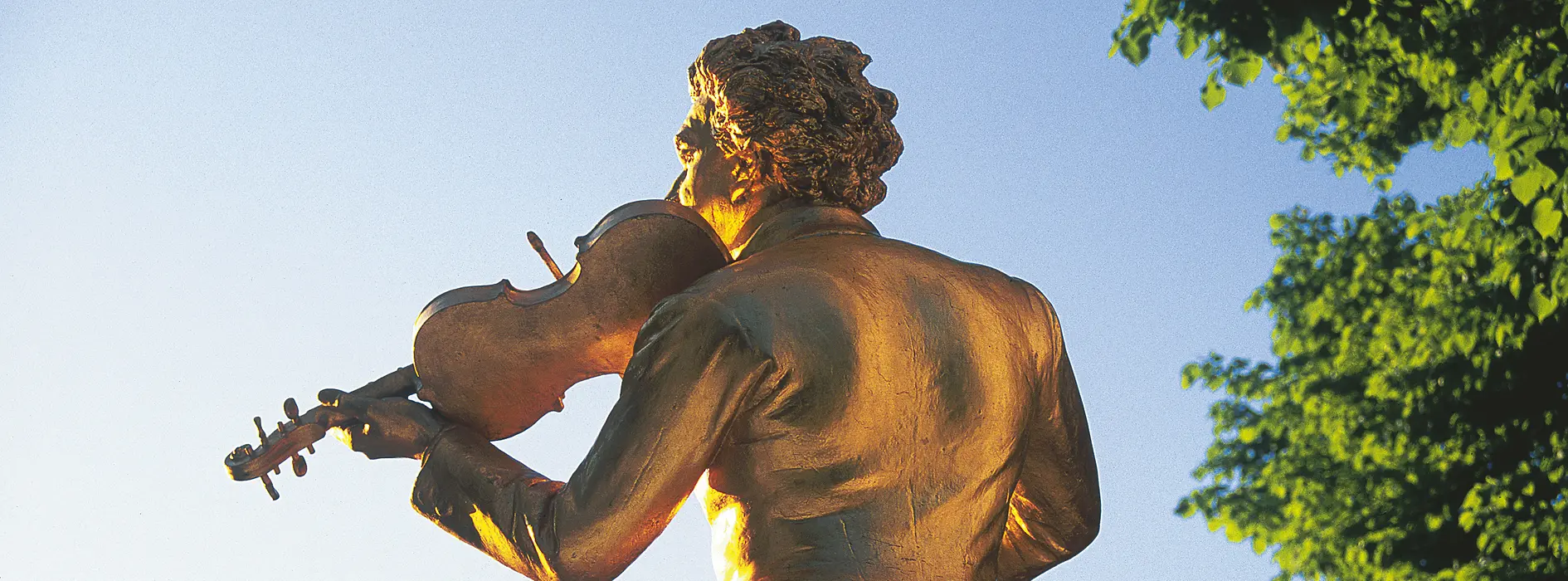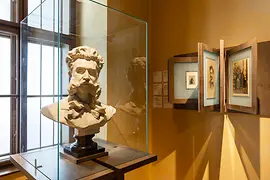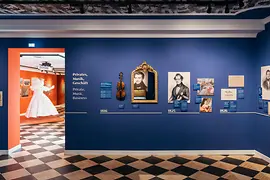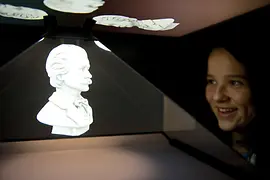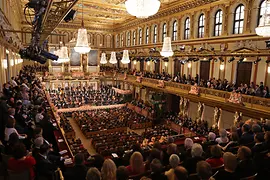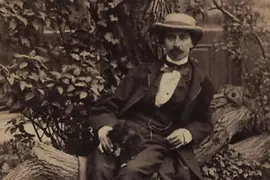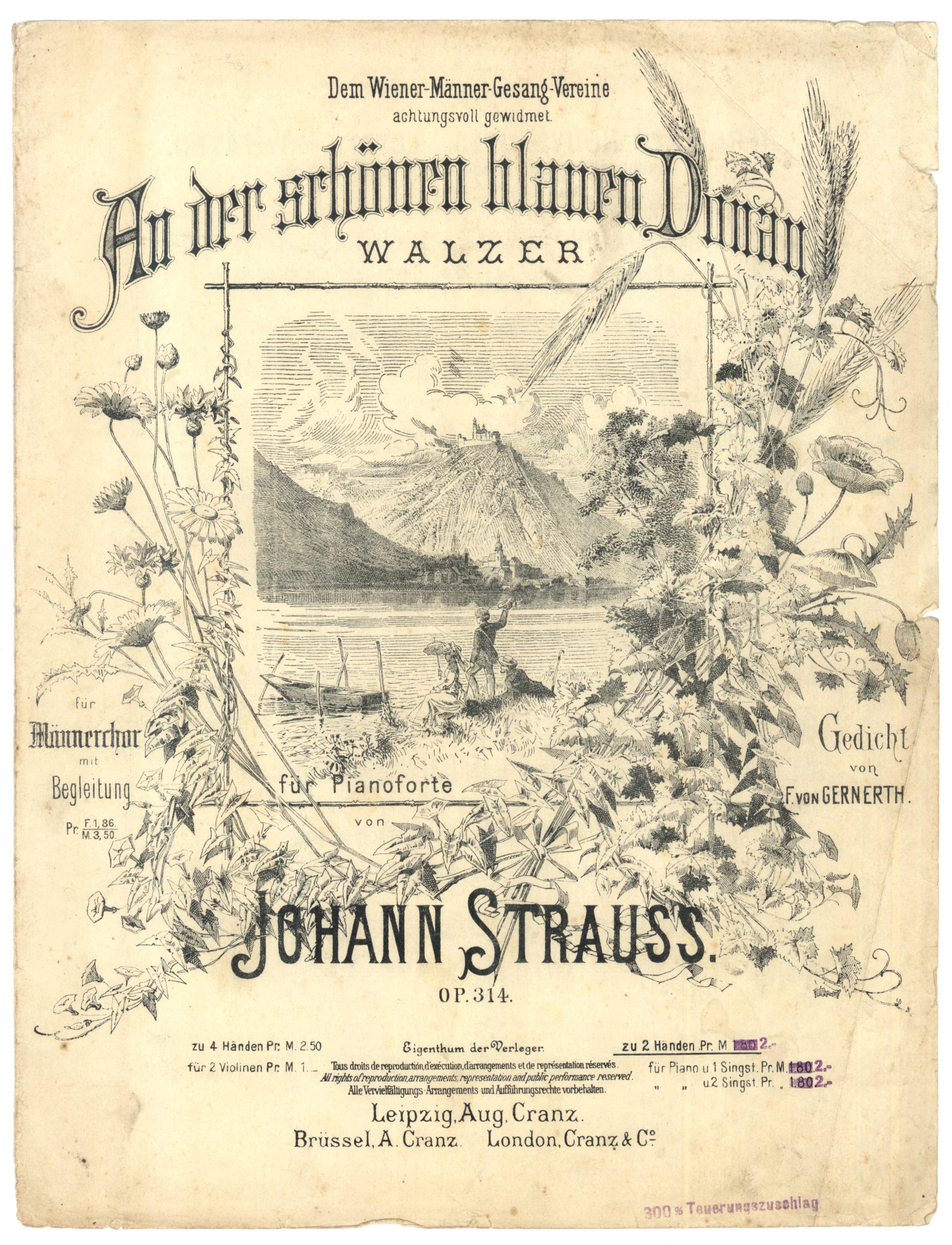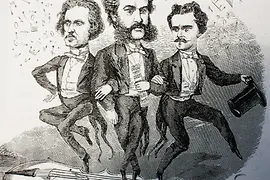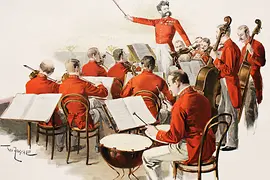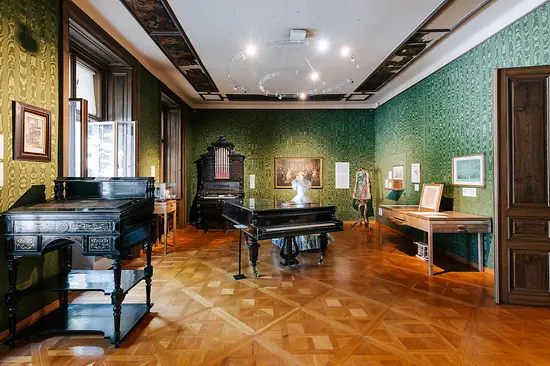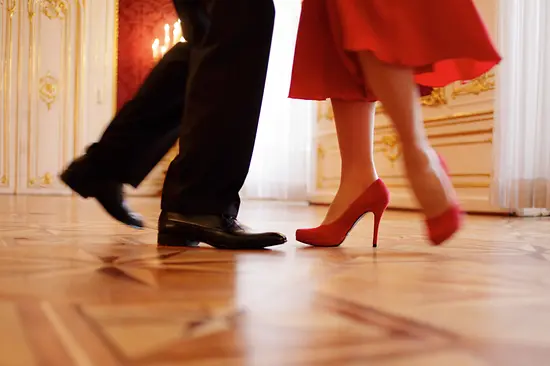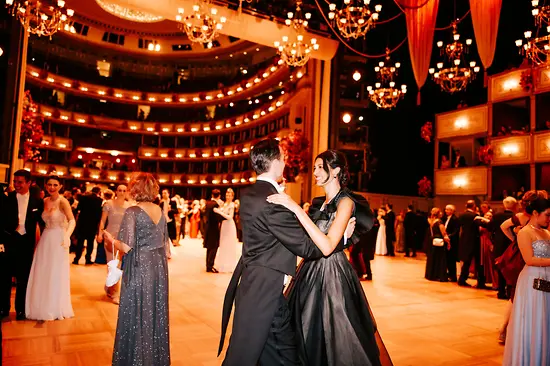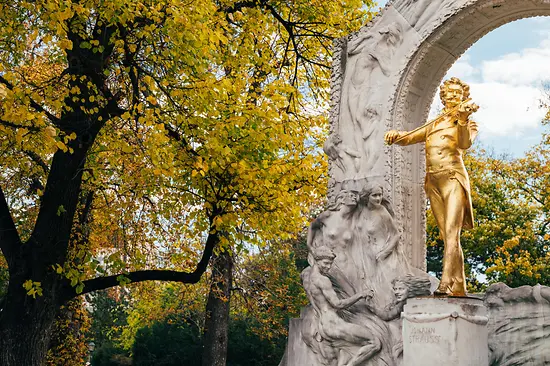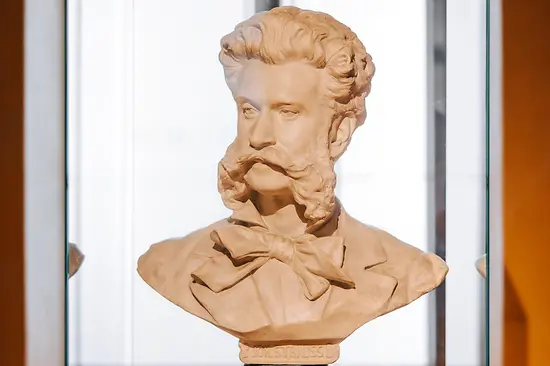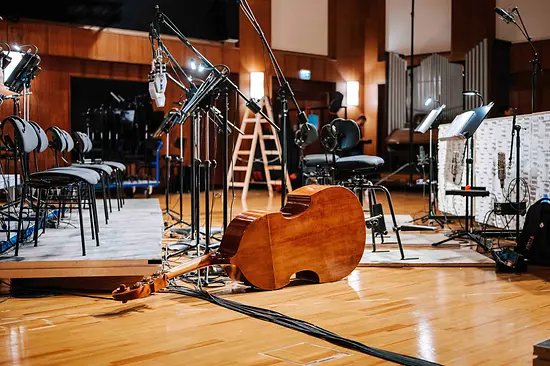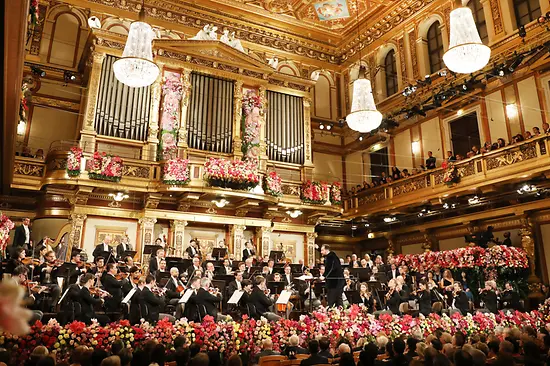Johann Strauss – The Waltz King
Continents and centuries were no limit to the success of Johann Strauss II. (October 25, 1825 – June 3, 1899). Vienna is putting the spotlight on Strauss, one of the city’s greatest musical stars, to mark his 200th birthday.
The phenomenon that was Johann Strauss II
Strauss embodied everything that makes a pop star today: He was more famous in his time than anyone else. He had charisma, talent, a flair for business and international success with tours as far afield as the USA, as well as a huge fan base. His influence was immense and he shaped the entertainment culture of his time. Strauss was a cult figure – not unlike the pop stars of recent times, from Elvis to Michael Jackson and Madonna to Taylor Swift.
Die Fledermaus is the most famous operetta in the world, while the Danube Waltz is the unofficial anthem of Vienna and has achieved cult status, for example in Stanley Kubrick’s 1968 science fiction classic “2001: A Space Odyssey”. Strauss’ waltzes are an integral part of the thriving Viennese ball season and also entertain 50 million TV viewers at the Vienna Philharmonic’s traditional New Year’s Concert at the start of each new year.
Strauss and Vienna: King and Queen
The Strauss anniversary year in 2025 carries the motto King of Waltz. Queen of Music. Strauss was already celebrated as the Waltz King during his lifetime. His queen is Vienna, the world capital of music. Only here could geniuses such as Mozart, Beethoven and Strauss express the full extent of their creativity. Today, the city’s cultural scene is buzzing. Vienna’s stages attract 10,000 visitors a night. The King and Queen will waltz together in perfect harmony in 2025: The superstar and the world capital of music.
Events in 2025: Strauss in all his glory
Vienna will be the big stage for a packed Strauss program in his anniversary year. There is just as much space for traditional Johann Strauss performances as for innovative projects, ranging from augmented reality to world premieres. Major Viennese orchestras will be involved as well as artists from a wide range of genres. There will be premieres every week, ranging from concert music, drama and performance to digital and immersive art.
All of Vienna’s major music institutions will be involved, including the Musikverein (Vienna Music Society), the Wiener Konzerthaus, the MusikTheater an der Wien, the Vienna Volksoper and the Vienna State Opera. Visitors will be able to enjoy Strauss experiences in surprising locations – both indoor and outdoor – in all 23 of the city’s districts, including at the Central Cemetery and at the Danube Island Festival. These will be complemented by special themed days such as Fledermaus Day on April 5 and Strauss’ birthday on October 25.
Strauss exhibitions
Several exhibitions and museums will explore Strauss’s life and work from different angles:
- Celebrating Johann Strauss (until Aug. 17, 2025): the major Strauss exhibition at the Theater Museum.
- House of Strauss: Vienna’s main Strauss center with a museum and concerts. An original venue where Strauss performed.
- Strauss’ apartment on Praterstraße: preserved in its original design!
- House of Music: Conduct the Danube Waltz with the “Virtual Conductor” in Vienna’s museum of sound.
- Johann Strauss. New Dimensions: the new immersive experience.
More on Vienna’s Strauss events
A depiction of Strauss can be found in the Stadtpark: the Strauss Monument, the “Golden Schani”, was Vienna’s most photographed monument even before the anniversary. It embodies the Viennese attitude to life, what is known as Viennese Gemütlichkeit, which is characterized by a sense of unhurried enjoyment. It is just as palpable in Vienna’s coffee houses, and a Strauss waltz can be heard providing the perfect musical backdrop in many a concert café.
Tritsch-Tratsch
Strauss Junior’s popularity was immense. He was also the talk of the town because of his rivalry with his father Johann Strauss I and his three marriages. He himself gave one of his pieces the title “Tritsch-Tratsch-Polka”. Everyone loved the “Waltz King”. Strauss’ music permeated the whole of society, making his influence enormous.
A business professional
His achievements: Johann Strauss perfected a popular music culture based on dance music and created a well-structured family business. His mother, wife, brothers Eduard and Josef - everyone played a role. After all, he would not have been able to cope with the producing and performing everything all on his own. Even though he did perform up to three times a night.
Johann Strauss offered quality as well as quantity (500 dance pieces, 15 operettas!), while his works played a central role in the social scene of his time. His concerts and balls were popular, well-attended events. And his compositions, as perfect as they were timeless, went straight to the heart – as audiences find they still do today.
